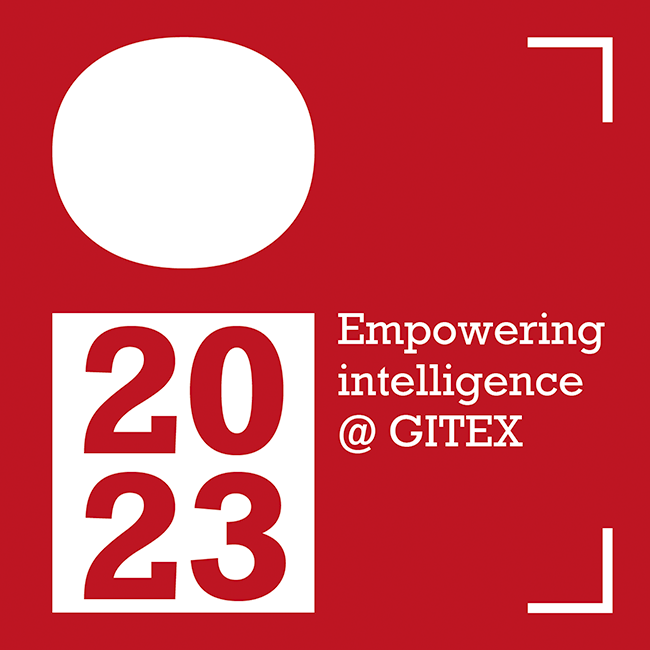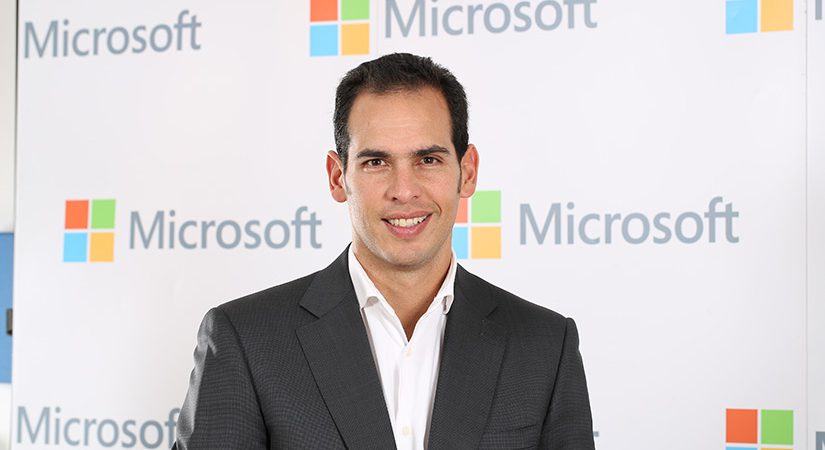Jamie Galviz, COO Middle East and Africa at Microsoft talks to Intelligent CIO about how Microsoft is bridging the skills gap that is currently standing in the way of digital transformation.
Q: What is Microsoft’s primary focus for GITEX this year?
A: There has been a big shift in the market in the last year. We have seen the world becoming cloud-first, mobile-first and moving forward we see an intelligent cloud, intelligent edge market. That shift is our priority, focusing on why is this happening? How is this happening? And how businesses, people, companies and partners can leverage the technology that has enabled this shift to be able to do more, achieve more.
We have seen companies trying to do that in four areas: by empowering their employees in a new way of work; by connecting differently with the customers and finding new channels to connect with them; by helping reducing cost and optimise operations and the way they internally do business; and last but not least is how you create new ways of doing business and how you create new partnerships, which I think is happening a lot and not only at business scale but at economies and market scale. Our focus is about this shift and how technology today will enable that shift and how the companies, the governments and the entities can get benefit from that.
Q: Are there any new products that Microsoft is launching at GITEX this year?
A: The good thing is we have a whole portfolio. When you move to this intelligent edge, intelligent cloud, you move from a concept that you have experienced in one device to your experience now being built up on many of these devices. The second thing that happens is you move from everything in the cloud, the power in the cloud, to a power that is distributed between the devices because now the devices can have some artificial intelligence by default, this is a device that works like a server that can have a processor.
So we’re announcing technology that enable those things to happen. We have Azure IoT Edge, we have Azure Stack. We have announcements around Office 365. We have Windows 10 update which also helps you with the security part and the integration of managing these devices in a structured way.
Q: How does Microsoft define digital transformation? And in what ways are we currently seeing digital transformation happen across the Middle East and Africa region?
A: In the Middle East, we have seen a big appetite to go for this, mainly driven by cost saving and security. In terms of verticals, we have seen keen interest from the oil and gas industry which is using digital technology to save costs and improve their operations. We have seen verticals like the financial sector, which is big in the region, thinking about how do I become more secure, how do I prevent fraud detection? How do I connect and manage all the information that goes around in a more secure way?
We have seen the government trying to figure out how to embrace the new modern government and connect better with the citizens and deliver one government unit instead of pieces of governments.
We think security is going to be one of the key ways to innovate. How you can drive a more secure environment, how you can use technology to prevent issues but also to support a very secure structure.
We feel the big explosions around digital transformation are going to happen in the next 18 months. Because if you ask me about the obstacles that haven’t allowed us to move much faster, there is low broadband operation, there is a skills gap. You look at how many data scientists we have worldwide, we have just 1% in the region. And we have one of the lowest footprint of data centres and in the world, which is only 4% in the entire region.
Despite these challenges, the commitment from the government and the desire is there.
Q: How is Microsoft bridging the skills gap that is currently holding back DT?
A: In the skills part, one of the key things that we have seen pushing this forward is that artificial intelligence has become a reality. That is one of the enablers, when you think about really high-level data transformation, it’s been about the amount of people who know how to do advanced algorithms. And in the region there is a good number of people who know how to do advanced math and advanced algorithms, algebra and all these things but they don’t necessarily know how to code.
They don’t necessarily know how to use the technology and the power computing to bring this thing together and when we see the largest customers, they’re bringing those data scientists from outside. We decided to create something we call Cloud Society, which was launched around four months ago. Today we have around 35,000 people in learning part structure content that is online, on-demand, webcasts and live content plus some events. We have around 5,000 people as part of this, just five months since we launched it across the entire Middle East and Africa.
Physically we have identified, through a partnership with LinkedIn, many of the people who have the profile to become data scientists but they don’t know it. So far we have trained more than 350 people one-to-one on presence. We have invested a lot in creating this platform with this learning part focused on how do you use cloud computing, how we do security for that, how do you develop solutions for this intelligent edge, intelligent cloud with the new tools.
We also learn a lot this way and we discover amazing potential in the market which is the important thing. We have seen the desire for the people to learn and to keep going which is great.
Q: What industry trends do you see emerging in the next couple of years?
A: All these new technologies, more than creating new jobs – because I don’t think that’s the point – have created new ways of doing things and people are starting to see a lot of change in the way you do business.
There is a case in Abu Dhabi global market where they created the e-court, so they bring the cases and any judge around the world can say “I want that case” and they take it. So, you don’t have cases assigned to physical judges but a virtual court and it’s purely on-demand. It’s changing the way you use the justice system; maybe the expert judge about this topic is in Australia, that’s not a problem anymore, you are not limited.
In medicine, we have created a platform that gives you a service where you can have a chat or a video call or Skype with a first-hand doctor. This means for 90% of cases you don’t have to go to a doctor or a hospital. And one of the biggest economy problems that we have is the cost of healthcare. So, the impact that this has is crazy. It’s changing the way we do things. This technology is really enabling massive change to everybody and that’s why we are all excited about this.
Click below to share this article
